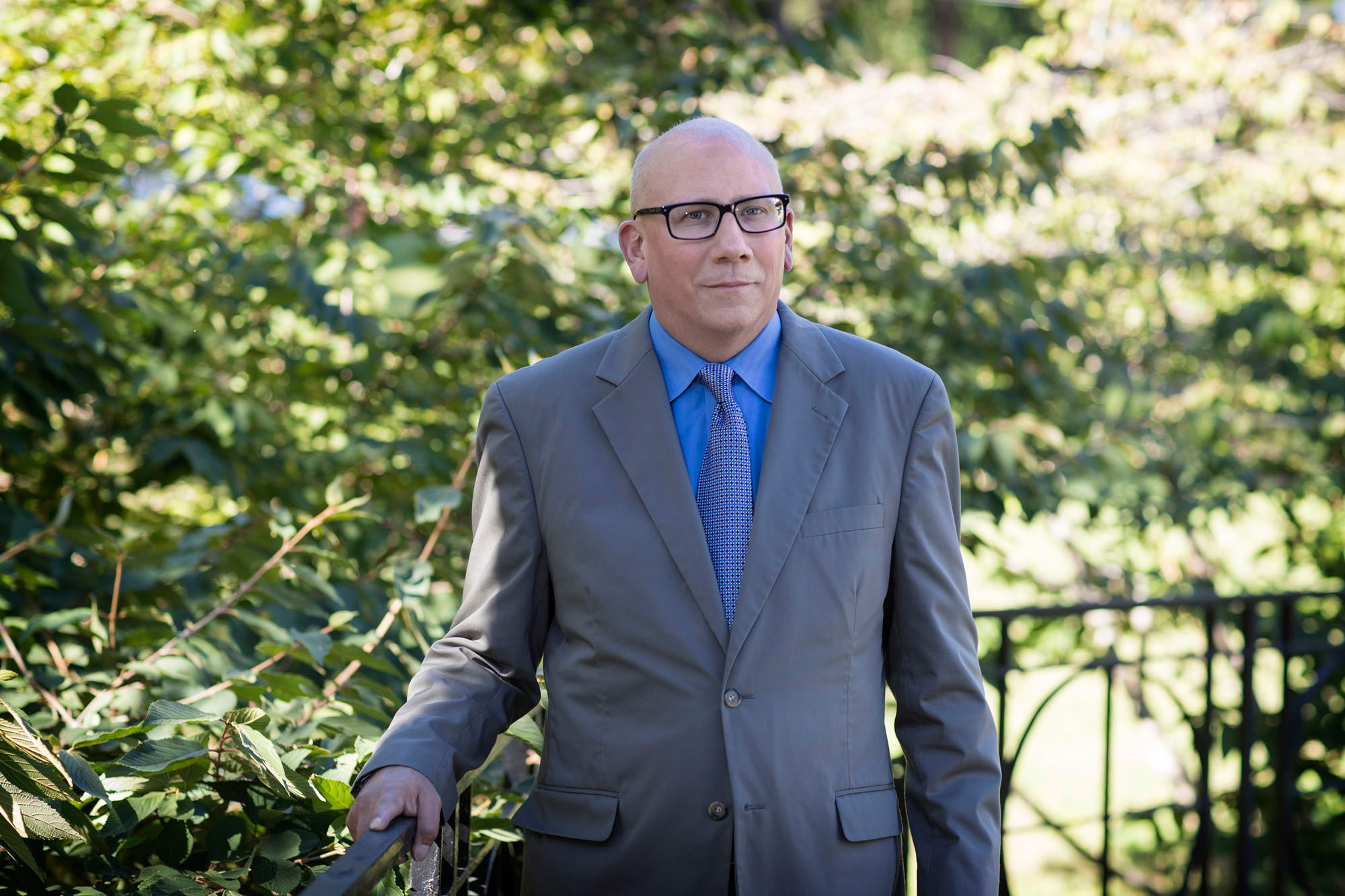In an era of international terrorism and cyber crime, modern policing takes more than just street smarts.
To that end, the University of Virginia’s School of Continuing and Professional Studies plans to soon offer a master’s degree in public safety administration. Funded by a $600,000 contribution from the Board of Visitors’ Strategic Investment Fund, the new degree program would offer courses to develop leadership skills through a wide variety of interdisciplinary perspectives.
Steven Laymon, interim dean of the School of Continuing and Professional Studies, said the school is uniquely positioned to fulfill this mission. It has partnered with the Federal Bureau of Investigation in the design and delivery of the FBI’s National Academy since 1971, and, beginning in 2005, the school joined with the Virginia State Police to offer a similar program, the National Criminal Justice Command College, in Richmond.

Steven Laymon, interim dean of the School of Continuing and Professional Studies, cited his school’s experience with working with law enforcement officers as a plus as it takes on the master’s program. (Photo by Dan Addison, University Communications)
“Both programs are designed to provide police officers, selected by their home departments and agencies as emerging or rising leaders, with a rigorous and immersive educational curriculum, focused on leadership; state-of-the-art tactics; tools for new challenges, such as global terrorism and cyber security; and foundations for community relations,” Laymon said. “While these partnerships have been successful, the University of Virginia has the opportunity to do more.
“Drawing upon our role as a leading public university and our Jeffersonian legacy, which encourages us to address broad societal and civic needs, SCPS seeks to develop new programs to serve the nation’s emerging, 21st-century public safety and criminal justice challenges.”
The program would utilize the School of Continuing and Professional Studies’ experience with online education and its connections with existing facilities.
“The program will be a low-residency, executive education-style program that combines online study with short, intensive residential sessions three or four times a year,” Laymon said. “Right now, we envision seeing the in-person residential sessions being held in Northern Virginia, giving students easy access to airports, and perhaps Richmond, giving us access to the Virginia State Police training facilities.”
The proposed program is subject to approval of the Faculty Senate, the Board of Visitors, the State Council of Higher Education for Virginia, and the Southern Association of Colleges and Schools Commission on Colleges. The next step would be for the school to hire an assistant professor of practice in public safety administration who will serve as the statewide program director and be responsible for assembling the curriculum and partnerships necessary to begin the program. Laymon hopes to have the program designed and running within three years.
Initially, the program will focus on law enforcement officers and executives. Laymon said nearly 50 percent of police officers have bachelor’s degrees, so if they are going to pursue further education, it would be on the graduate level.
“Police work today is not just tactical,” Laymon said. “Police work needs to be looked at in its social and political context.”
Laymon said the School of Continuing and Professional Studies’ strategic relationships with the Department of Justice, the Federal Bureau of Investigation, intelligence agencies and the Virginia State Police will be a key element of the new master’s degree program.
“In our role as curricular partners with the FBI in the FBI’s National Academy, we have a seat in the wider discussion about 21st-century police work,” he said.
The FBI Academy, founded in 1935 by FBI Director J. Edgar Hoover, has become a valuable resource for police departments across the country and is a “necessary stop” for police officers seeking promotion. It has also played a role in mapping new practices and priorities for law enforcement.
“SCPS maintains a strategic relationship with law enforcement agencies, has a successful record in adult, non-traditional and professional education, and years of experience delivering transformative online education,” Laymon said.
The President’s Task Force on 21st-Century Policing, launched in May 2015, has stressed a need for building trust within the community, oversight, understanding technology and social media, community policing, education and wellness. The challenges to modern police work require interdisciplinary approaches, which the University can supply, Laymon said; he anticipates opportunities for partnering with other schools at the University, such as the Law School, the Curry School of Education, the Frank S. Batten Institute for Leadership and Public Policy and the Data Science Institute.
The School of Continuing and Professional Studies is already working on cyber security. Angela Orebaugh, director of certificate programs in cyber security management and information technology, is currently teaching a graduate program in cyber security.
“This is part of our Jeffersonian legacy – education in the service of something,”
Laymon said. “Where police work happens is where we need to think about this broad social discussion.”
Media Contact
Article Information
October 10, 2016
/content/uva-launch-public-safety-masters-program-police-professionals

